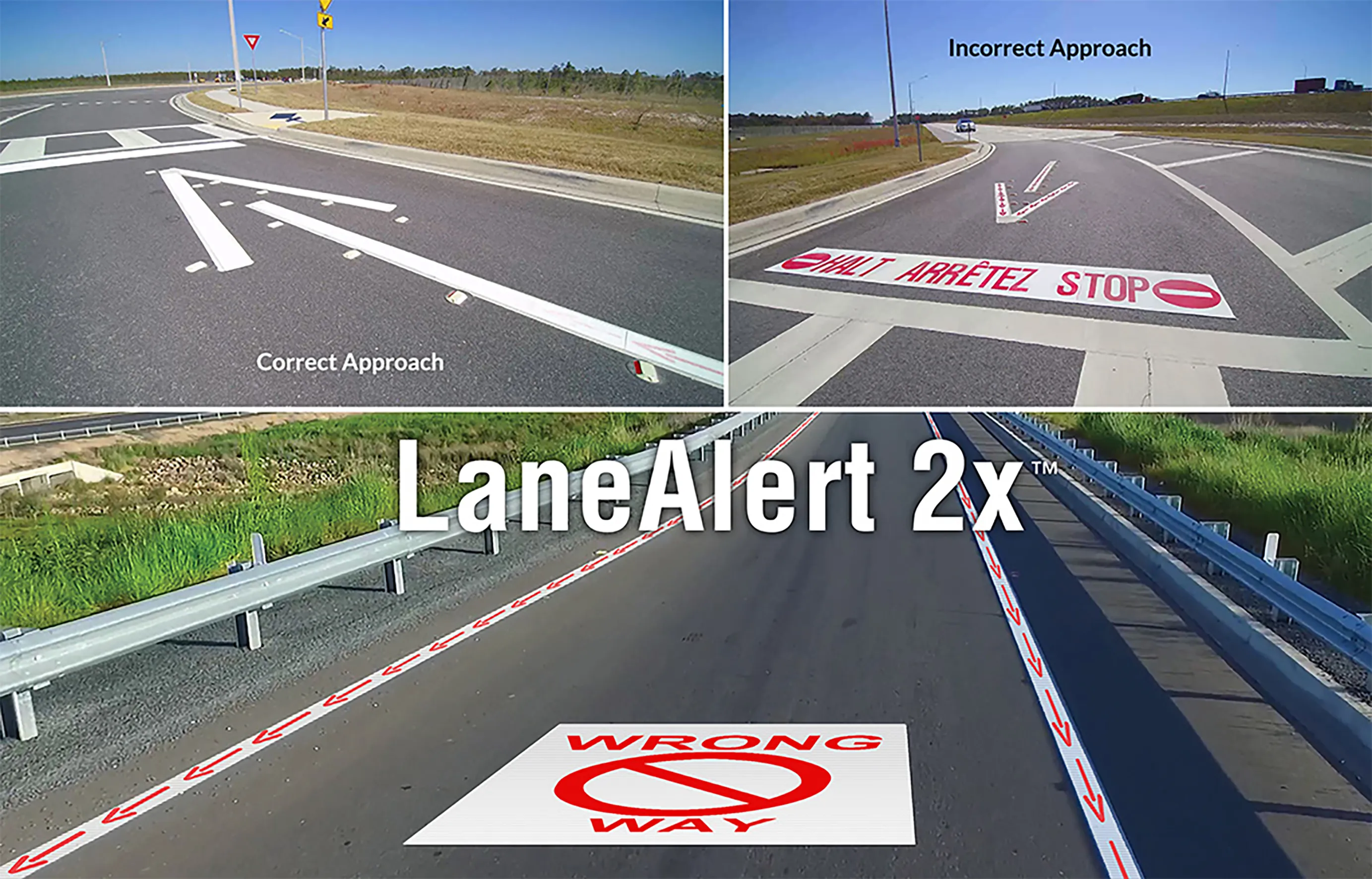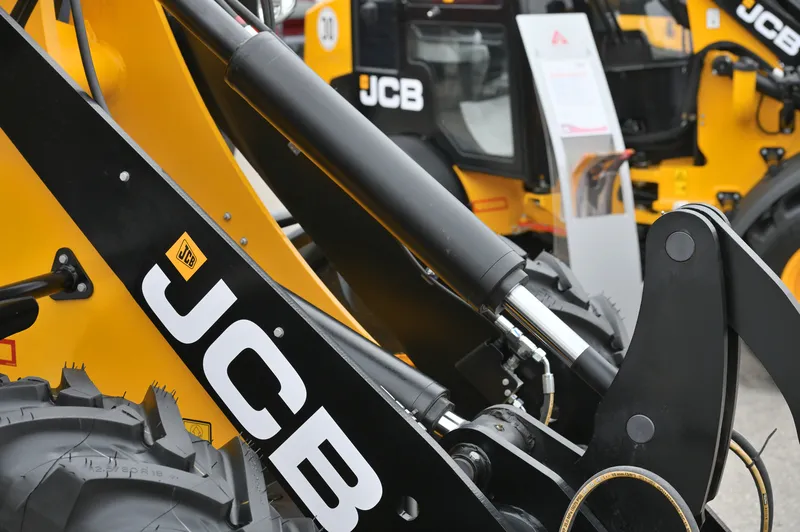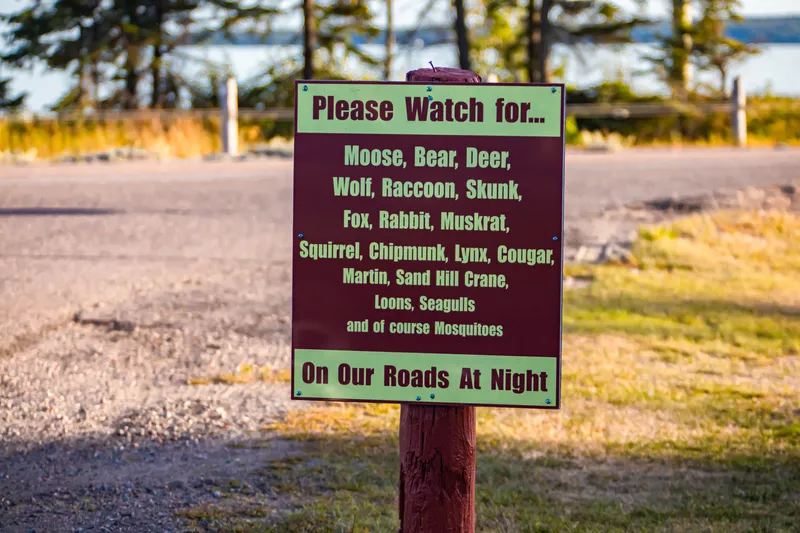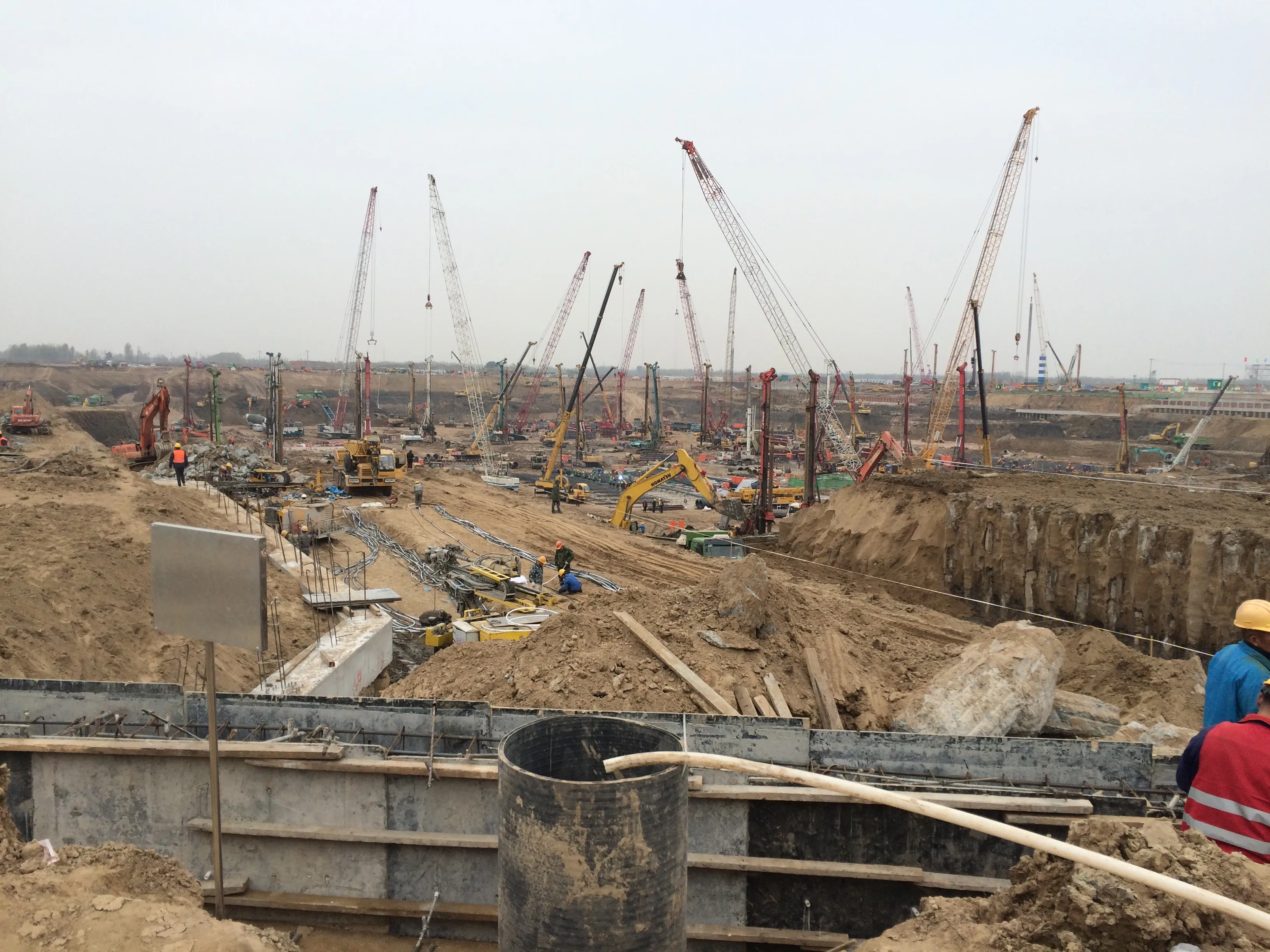
Professional Pavement’s LaneAlert 2x is a bi-directional marking that displays two distinct messages, depending on which way the driver approaches, he or she will see only one message.
Professional Pavement, headquartered in Jacksonville in the US state of Florida, makes safety products including road markings and also distributes highway safety products.
Greg Driskell, president of Professional Pavement, accepted the ATSSA award in front of more than 3,400 people at the 48th Annual Convention & Traffic Expo in San Antonio, Texas.
“I hope that the LaneAlert 2x will change the way we see roadway markings,” he said.
Motorists recognise lines on the road to guide their path. These lines are paint or thermoplastic. LaneAlert 2x, however, is a polyurethane marking that can appear as a normal white or yellow line like motorists are used to.
“But if approached from the opposite angle, for example if a driver tries to enter an off-ramp from the wrong direction, the line itself will appear red, or have arrows that indicate to the driver that they are going the wrong way. It looks magical,” Driskell said.
The company has also developed directional messages that say “Do Not Enter” and “Wrong Way”.
For Driskell, the issue is personal. “We had one of our employees mistakenly enter a roadway going in the wrong direction and unfortunately, a police officer was killed. Everyone involved was devastated. I decided right then that I was going to work on a solution.”
Full-scale production of LaneAlert 2x is expected by this summer. Meanwhile, the company has a pilot programme underway which has sparked interest from more than 20 state-level departments of transportation.









